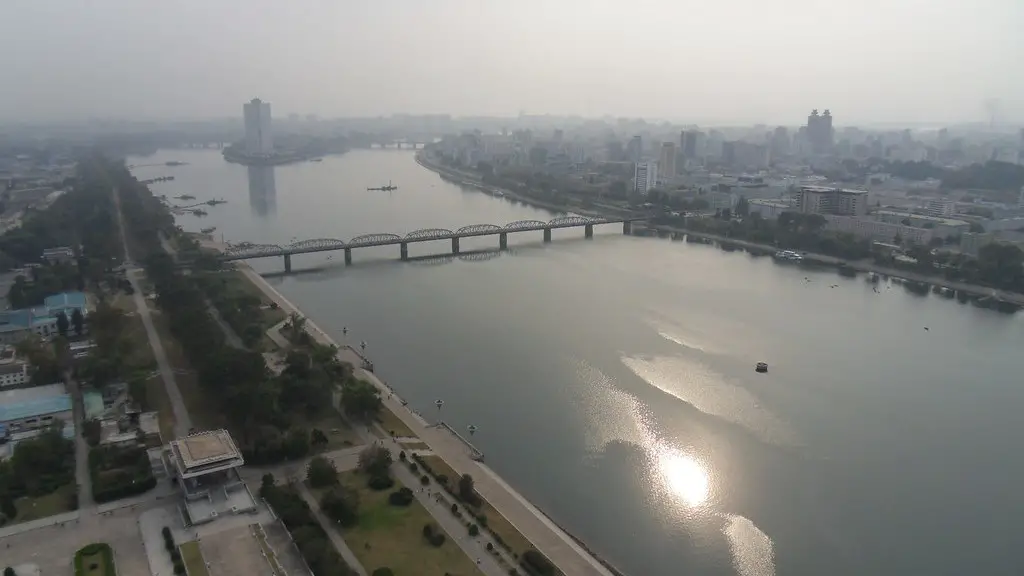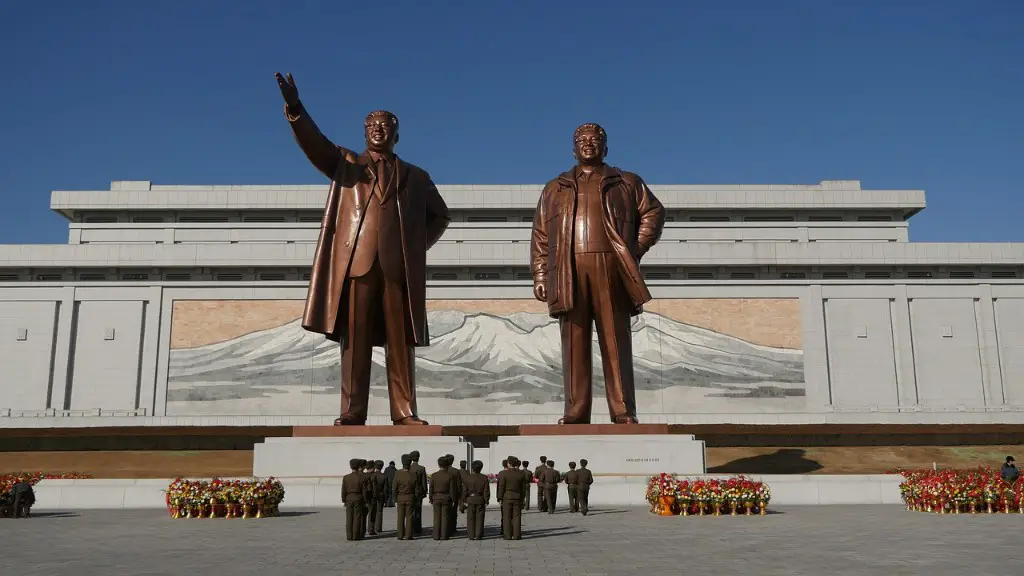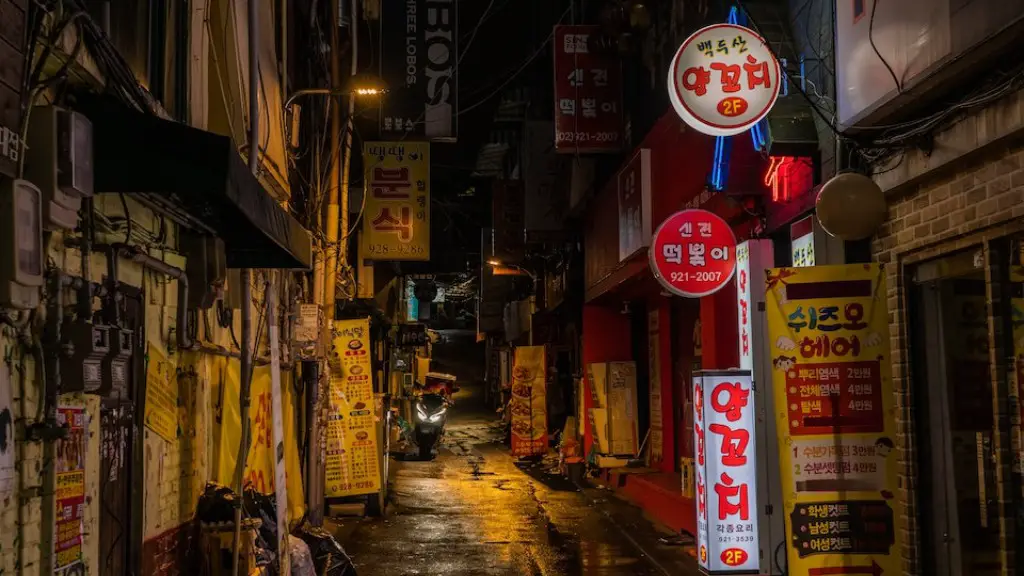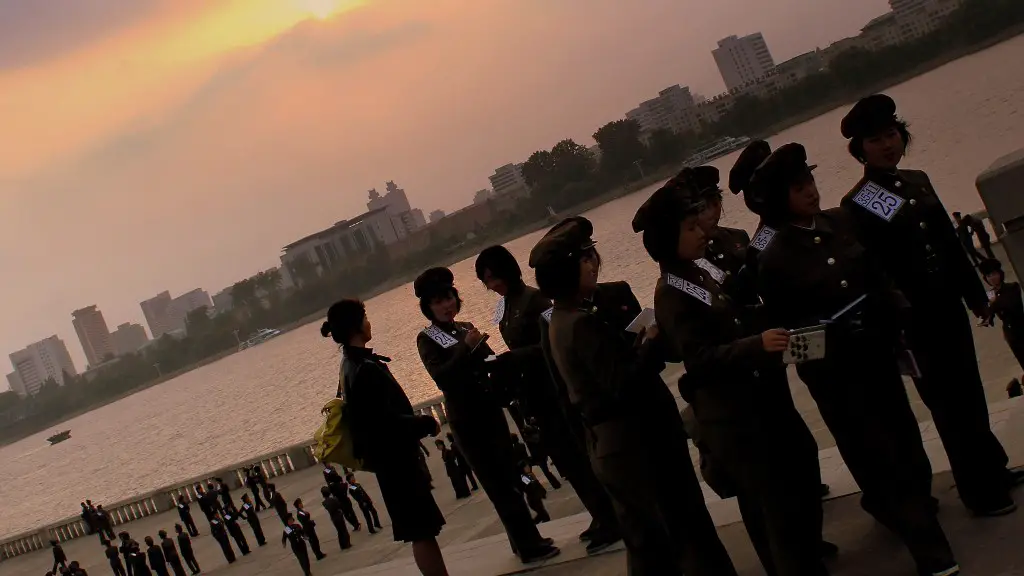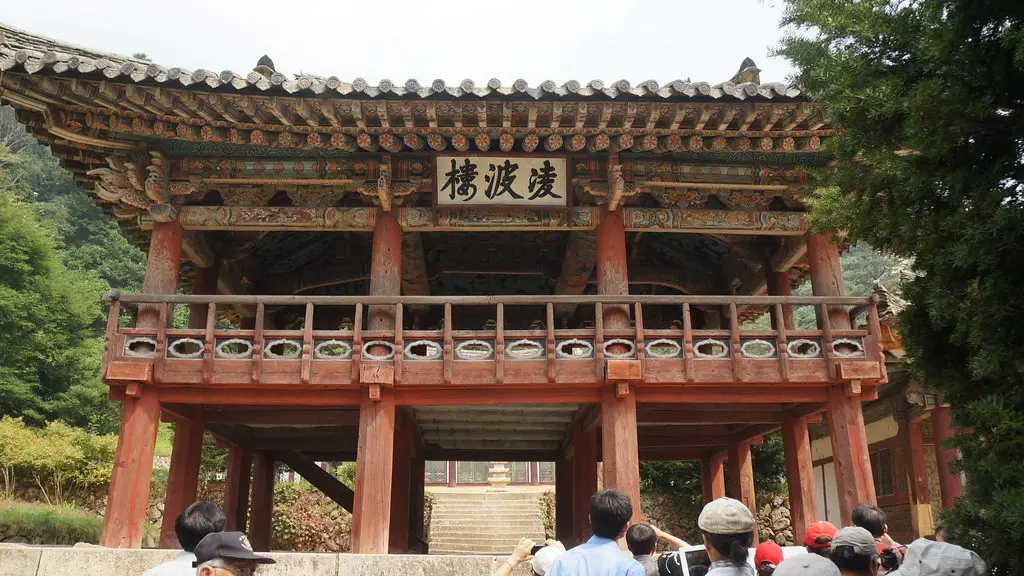North Korea is a hermit nation that has garnered a lot of negative attention in recent years for its nuclear threats of destruction. While there have been reports of movement towards denuclearization, experts suggest that North Korea may still be building more nuclear weapons.
For decades, North Korea has been a source of military concern due to its secretive nature and ambitions.North Korea’s motivations for developing nuclear weapons is complicated, with a mix of geopolitics and domestic reasons. One of the foremost motivations for their nuclear weapons program is the political leverage and security it offers. The possibility of a nuclear conflict is an attractive option for North Korea as a way to gain strategic advantage.Preventing North Korea’s nuclear ambitions has been a top priority for both North Korean and international leadership.
North Korea has tested multiple ballistic missiles and nuclear warheads since the start of its nuclear program. However, the last known missile test was in 2017. Since then, the country has adopted a public stance of denuclearization, although experts have suggested this could be a ploy by North Korea to gain diplomatic support.
Despite North Korea’s public stance, there is a lot of skepticism surrounding their denuclearization efforts. Satellite imagery has revealed that North Korea has continued to expand their nuclear weapons stockpiles, with some estimates suggesting that their arsenal could be as large as 50-60 nuclear warheads.Furthermore, satellite imagery has revealed the presence of facilities dedicated to the production of enriched uranium.
The scope of North Korea’s nuclear capabilities is uncertain due to their secretive nature. The size of their missile arsenal is hard to accurately measure because the nation does not officially acknowledge the success of their missile tests. Nevertheless, the international community has been successful in placing economic sanctions on North Korea in an effort to deter any nuclear proliferation.
With the ever-increasing potential of nuclear conflict, the international community must remain vigilant in preventing a nuclear war. North Korea’s motivation for pursuing nuclear weapons is complex and cannot be solved simply by imposing sanctions. A combination of diplomatic and economic measures may be necessary in order to ensure the safety of the world.
The International Response
The international community has taken a variety of actions in response to the North Korean nuclear program. The United Nations Security Council has imposed a series of economic sanctions in an effort to deter North Korea from continuing the development of its nuclear capabilities. Other countries, such as the United States, have employed diplomatic relations as a way of diffusing tensions between North Korea and the rest of the world.
The international response to the North Korean nuclear issue has been largely ineffective. Despite the economic sanctions, North Korea continues to make modest progress in the development of its nuclear arsenals. As a result, the international community has been forced to contemplate alternative solutions, such as military action. However, most experts agree that any attempts at military intervention would result in a devastating war that would endanger the lives of millions of people.
The diplomatic efforts to diffuse tensions with North Korea have yielded limited results. US President, Donald Trump, and North Korean Leader, Kim Jong Un, have made several attempts at negotiations but no concrete agreements have been reached up to now. While there have been some small gestures of goodwill, the two countries remain at odds with each other about the final outcome of any denuclearization agreement.
The Cost of Conflict
Nuclear conflict between North Korea and the rest of the world would have a devastating impact on both sides and the global economy. North Korea has a small population and limited resources, so any nuclear exchange would drastically reduce the nation’s population and devastate its infrastructure. Furthermore, a nuclear attack on South Korea or any other nearby country would result in a catastrophic loss of life.
The economic costs of a war with North Korea would be immense. The disruption to global supply chains and markets could lead to a worldwide recession. In addition, the environmental impact of a war would be severe, with radiation poisoning and contamination threatening the safety of the surrounding area.
The consequences of a North Korean nuclear war are too great to risk. The international community must find a diplomatic approach for denuclearization that will bring peace and stability to the region. In order to do so, countries must remain willing to negotiate with North Korea and make diplomatic concessions where necessary.
The Impact of Sanctions
Sanctions on North Korea have been a key tool for international negotiators in recent years. Many countries have imposed economic sanctions in response to North Korea’s nuclear weapons program. International institutions have also placed sanctions on individuals and organizations connected to the North Korean regime.
The effects of these sanctions on North Korea have been widely debated. Some economists believe that the sanctions have had little impact on North Korea’s economy, while others suggest that they have had a significant effect in reducing their nuclear ambitions. Most experts agree that the sanctions have played a role in the country’s decision to open up to negotiations.
The issue of economic sanctions has been controversial for many countries.On the one hand, economic sanctions are necessary to deter nuclear proliferation and to signal to the North Korean leadership that their actions will not be tolerated. On the other hand, sanctions can have a devastating impact on a country’s economy, with potential repercussions for its citizens.
The international community must carefully consider the impact of sanctions on North Korea. Sanctions are an important tool but should be used judiciously, with a clear understanding of the potential impacts on North Korea and the global economy.
Finding a Resolution
The North Korean nuclear crisis is one of the most pressing issues facing the international community. It is essential that a resolution be found that is in the best interests of both North Korea and the international community. To achieve this, negotiators must be willing to compromise on both sides and work towards a peaceful solution.
The difficulties of the nuclear negotiations does not come as a surprise. North Korea is a reclusive nation with a long and complicated history. In addition, the lack of trust between the US and North Korea makes negotiations difficult. With these factors in mind, it is more important than ever to find a diplomatic resolution.
One potential solution to the North Korean crisis is for international negotiators to accept mutual disarmament. This would involve North Korea agreing to dismantle their nuclear arsenals in exchange for economic benefits and security guarantees. While this may seem like a risky proposition, it could potentially be the best way forward.
Ultimately, the international community and North Korea must work together to find a peaceful resolution to the nuclear crisis. Negotiators must maintain an open dialogue and be willing to compromise in order to ensure the safety of the world.
The Future of Denuclearization
The denuclearization of North Korea is a complex process that will take time and effort. In the immediate future, North Korea must be willing to make significant concessions, such as the reduction of their nuclear weapons program.
On the international side, there must be concrete measures to ensure that North Korea complies with any denuclearization agreements. Furthermore, negotiations must be supported by economic incentives that will help to rebuild North Korea’s economy and lift its people out of poverty.
In the long-term, a successful denuclearization will require a sustained effort from both North Korea and the international community. This will involve maintaining diplomatic relations and providing economic assistance in order to ensure the safety and prosperity of the Korean people.
The denuclearization of North Korea is an arduous process with no guarantee of success. Nevertheless, the international community must remain focused on the goal of peace and work together to find a viable solution.
Conclusion
The development of nuclear weapons by North Korea has been a major source of contention for years. Despite the lack of visible progress, negotiations must continue in order to find a peaceful solution. For denuclearization to be achieved, North Korea must be willing to make significant concessions and the international community must show their support through meaningful economic incentives. Only then can a lasting peace be achieved.
